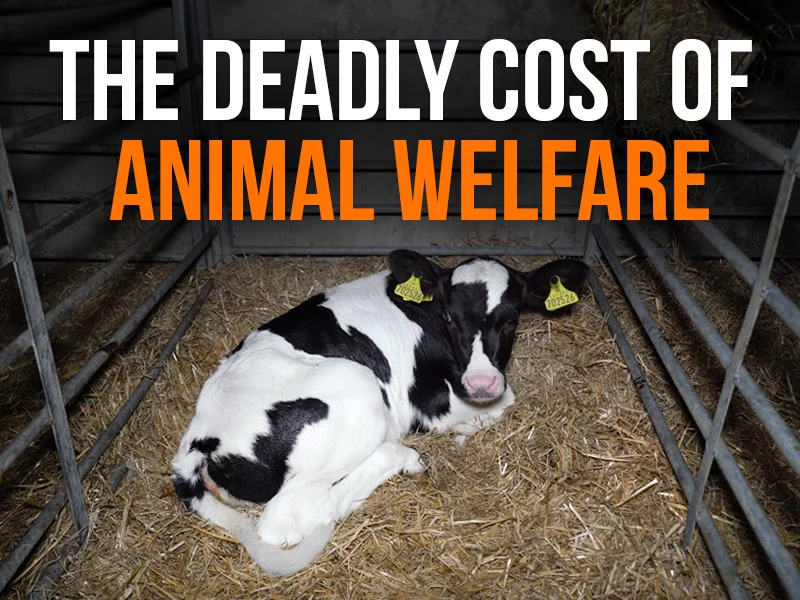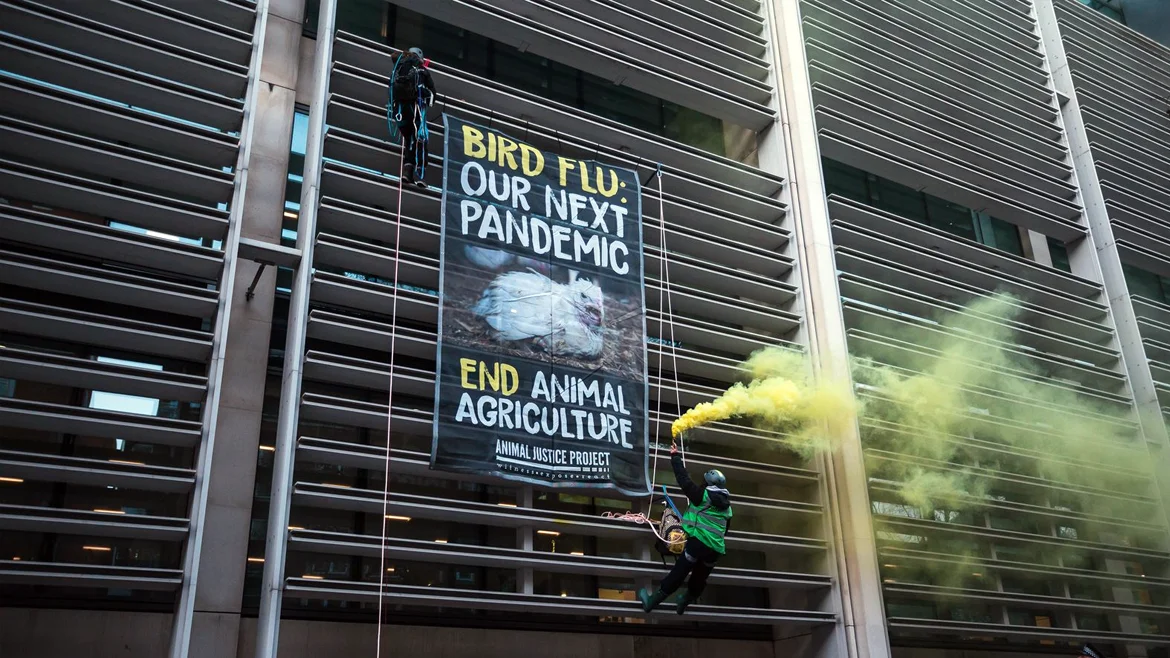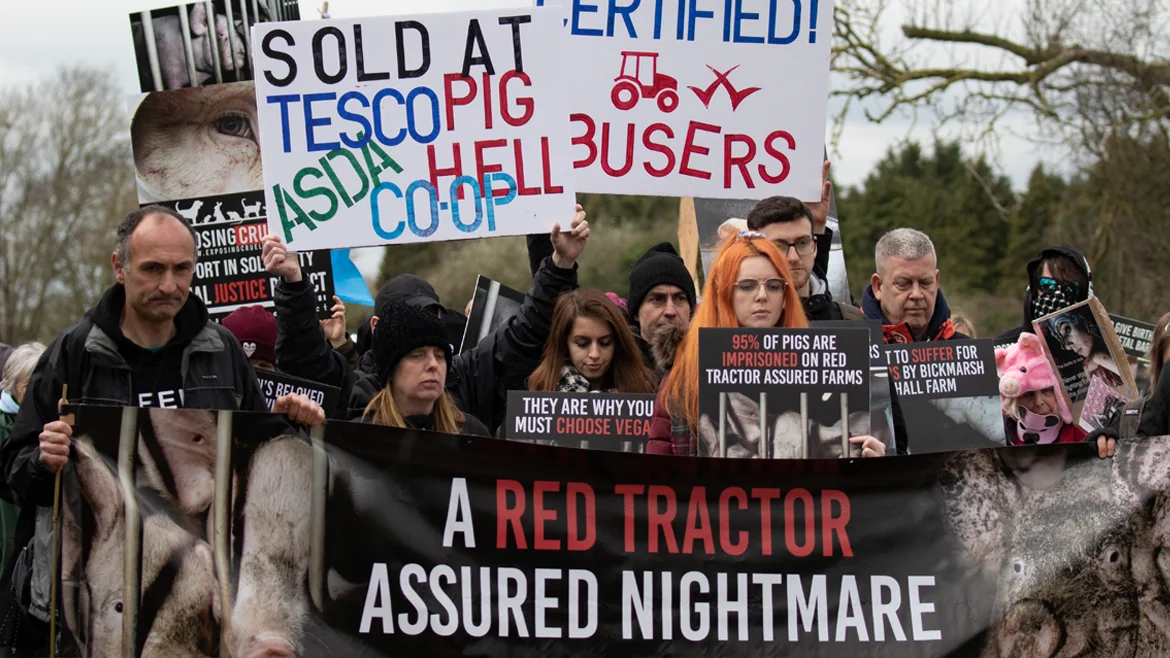
General
The Deadly Cost of Animal Welfare

Blog written by Julie Hurst, volunteer blog writer
Adopting a vegan lifestyle has never been easier. The availability of plant-based foods, in particular, means that today the decision is simple rather than challenging. Indeed, the number of vegans in the UK is growing – between 2023 and 2024, it increased by 1.1 million. However, despite the growing trend, there are still only about 2.5 million vegans in the UK, which represents just 4.7% of the population, and a recent study has suggested that one of the factors contributing to this may well be the welfare labelling of food.
It's claimed that far from being a stepping stone to veganism, animal welfare labelling may, in fact, be a hindrance. By transitioning to eating welfare-labelled meat, consumers may become less likely to eventually eliminate it from their diet. Could the availability of 'higher welfare' products actually be holding back veganism, and with deadly consequences?
The issue of welfare labelling is a topical one. The UK government has just launched a consultation to help shape policy in this area, and one of the key aims is to make it easier for consumers to choose 'higher welfare' products. But how reliable are food labels? What does 'higher welfare' actually mean? And more importantly, are the animals' interests best served by choosing them?

CAN FOOD LABELS BE TRUSTED?
By their very nature, food labels oversimplify. Exceptions and qualifications are typically missing, and far from empowering consumers to make informed choices, they are often grossly misleading. Take Lidl's 'Welfare Windows', for example, and the image used on the 'British Indoor' label for its own-brand chicken products. This appears to show two chickens inside a barn surrounded by plenty of space, which doesn't reflect the horrors of the intensive farming system in which the birds are raised. And neither does the accompanying description, which refers to 'comfortable housing', 'natural daylight', and various enrichment sources.
There have also been instances when claims made by food labels have subsequently been called out as completely false. In the documentary Seaspiracy, for example, environmentalist and filmmaker Ali Tabrizi discovers just how impossible it is to define or regulate sustainability when it comes to commercial fishing and how consumers are being misled by simple food labels as a result. He also exposes how little the 'Dolphin-safe Tuna' stamp and Marine Stewardship Council (MSC) blue checkmark actually mean.
It's questionable at best whether a labelling system can give consumers total confidence in the products they buy. But even if the new system under consultation succeeds, as the government hopes, and 'higher welfare' choices are made easier, will what appear to be well-intentioned buying decisions be justified?
Many consumers think a 'higher welfare' label means that extra care is taken when raising the animals and greater consideration is given to their overall well-being. But despite all that's implied, the term is being used entirely erroneously. It's part of a well-established narrative that is helping to sustain a system in which animal suffering is inherent. How exactly did this happen?

'WORLD CLASS' ANIMAL WELFARE EXPOSED
We are known as a nation of animal lovers. The UK was the first country in the world to introduce animal welfare legislation back in 1822, and the person behind this bill went on to establish the RSPCA. Successive governments have also banned several particularly cruel practices, including the use of gestation crates for pigs, barren battery cages for hens, hot branding of cows and the mulesing of sheep. It's not surprising that against this backdrop, the conditions in which farm animals are kept in this country are considered to be superior to those elsewhere in the world. This, in turn, has led to the phrase ‘world-class welfare' becoming the prevailing narrative.
Unfortunately, many accept this without question, and it's this general acceptance that the UK farming industry relies so heavily upon. After all, it's a huge commercial operation worth £19.3 billion a year, and its prime concern is profit maximisation. These profits depend on the continued consumption of meat, so phrases such as 'world-class welfare' serve the industry very well. However, the conditions in which the animals are kept and how they are treated in reality can hardly be considered world-class. The standards for keeping animals, as set out in UK legislation, are basic minimum requirements; they don't prevent suffering. And while laws may exist on paper, they are grossly underenforced in practice.

THE ENFORCEMENT PROBLEM
According to the Animal Law Foundation's 2022 report, an average of only 2.95% of the UK's 300,000 farms were inspected by public bodies between 2018- 2021, and just 0.33% of those were prosecuted following initial complaints of non-compliance. This contrasts with undercover investigations, of which there have been at least 65 since 2016, where illegal activity, prolonged suffering and/or substandard practices were found on every single occasion. But despite this, over 69% of complaints submitted following covert investigations saw no legislative enforcement action being taken whatsoever.
When footage from undercover investigations has become public, it has shocked the nation, but consistently, the abuse and suffering exposed seem to be quickly forgotten. It's quite easy to imagine that the 'world-class welfare' narrative renders these incidents as isolated by many, especially as we are all shielded from the industry horrors that are happening every day – if the UK's intensive farms and slaughterhouses were clearly visible within our society the situation would undoubtedly be very different. But there's another possible reason for this apparent apathy that's hidden in plain sight, and that's the actions of animal welfare charities.

KILLING WITH KINDNESS
Campaigns that commendably seek to alleviate the suffering that millions of farmed animals sustain every day are aimed at improving existing conditions and practices rather than the abolition of the systems that are the root cause. And this must surely colour consumers' views. Current particularly pertinent examples include the campaign to reduce the suffering sustained by fishes by introducing stunning requirements at the time of slaughter and the enforcement of more humane catching and handling procedures for chickens as they're loaded onto and then off trucks to be killed. Even if successful, the lives of these animals are being treated as expendable.
The welfare labelling of animal products hinders the long-term growth of veganism. It's clear that welfarism has a heartbreakingly huge impact on innocent lives. But until years of conditioning to eat meat, the farming system it has spawned, a grossly misleading narrative and misguided buying intentions are all confronted, animals will continue to pay the ultimate price.
As always,
For the animals.

.png)


.png)













.png)